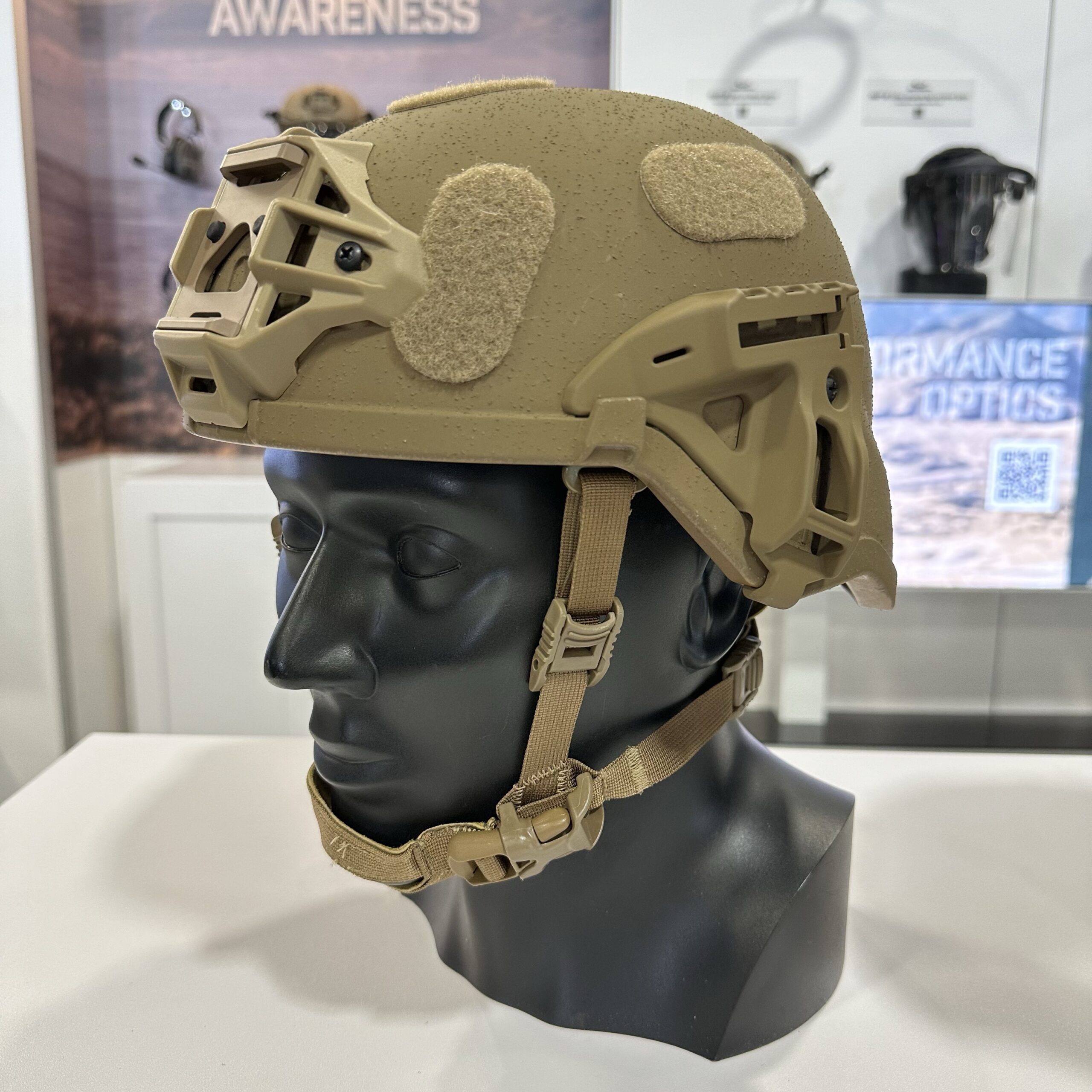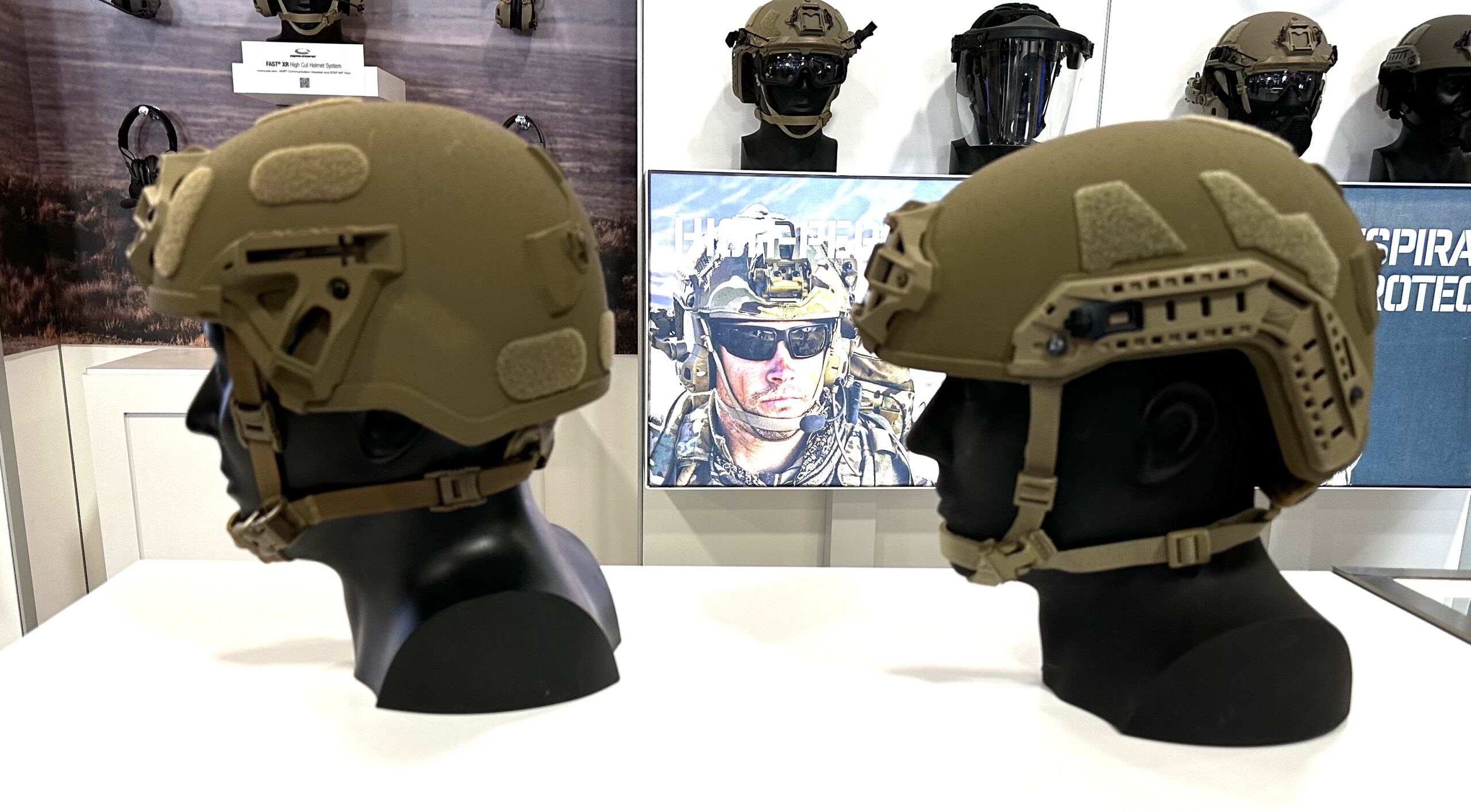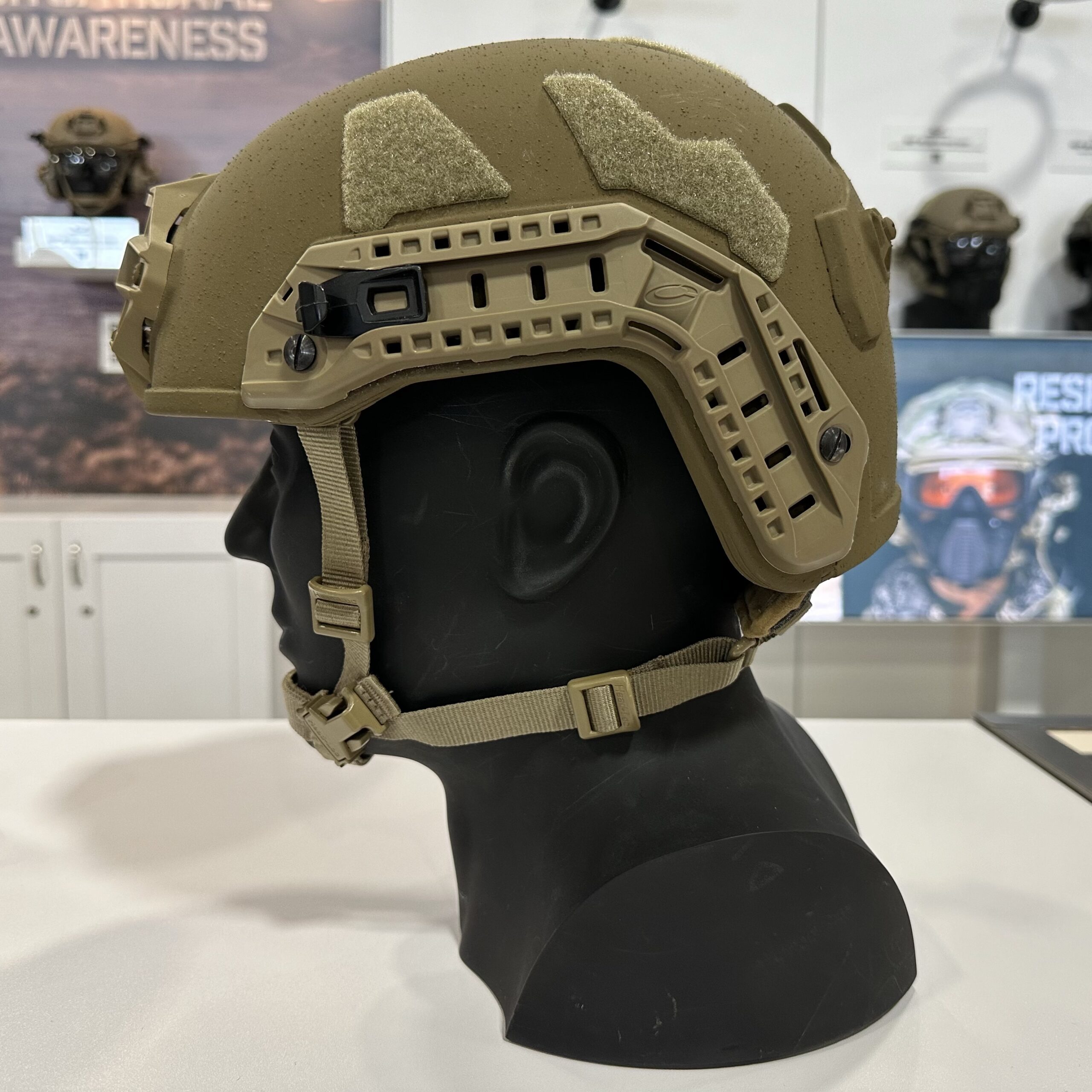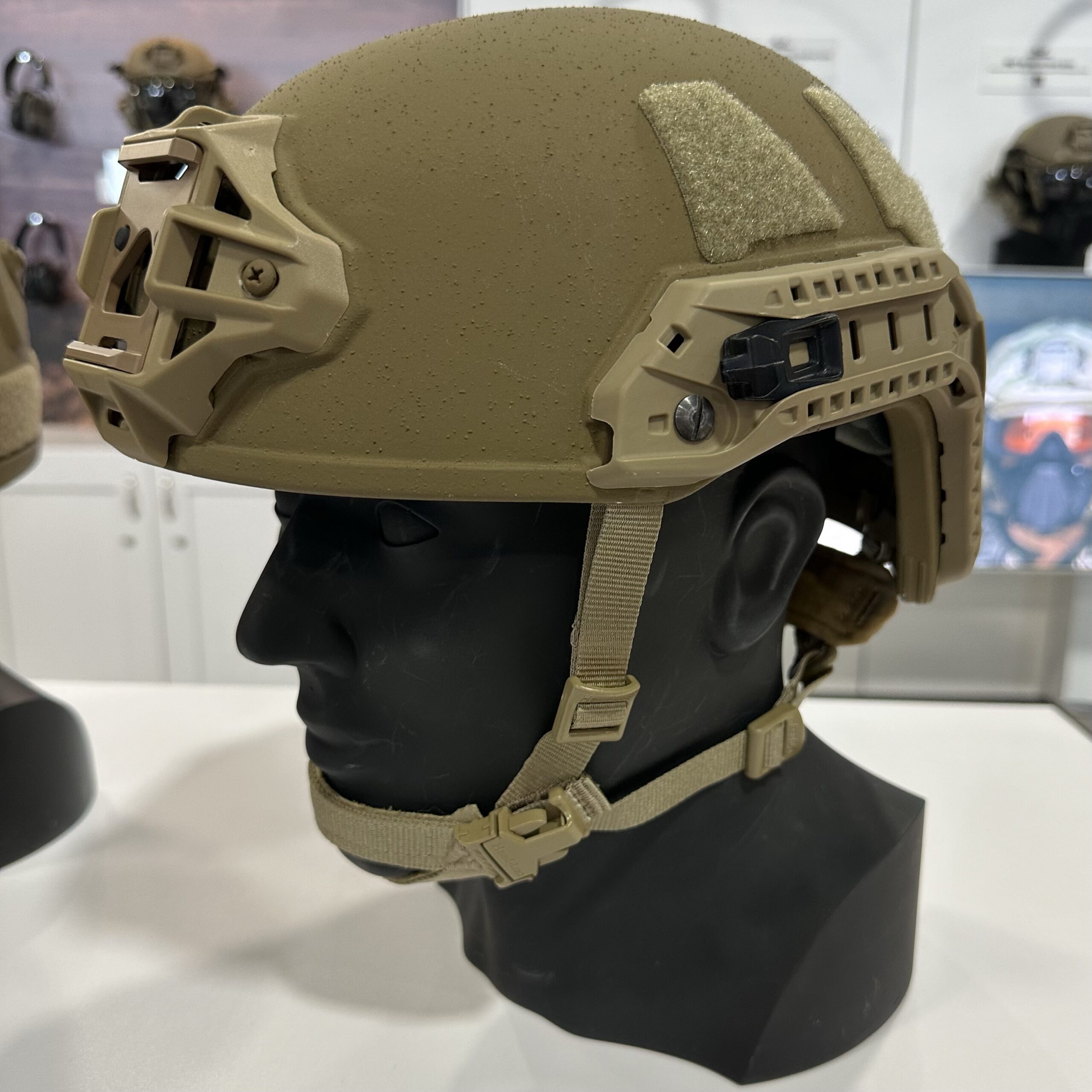Gentex is one of the current manufacturers for the Integrated Head Protection System. Currently rolling off the line is the Next Gen IHPS which has transitioned to a “holeless” design meaning there are no holes bored into in the helmet’s shell to accept the liner and external accessories.

Instead, there are adhesive receivers for the bolts adhered to the shell with epoxy. The effect is just as strong as the old way and doesn’t compromise the integrity of the ballistic shell.
However, IHPS still has a compromise shape in that it is a mid-cut helmet, making it difficult to wear with hearing protection.

Consequently, Gentex is examining offering a high-cut option and incorporating their tried-and-true ARC rails into IHPS and chin strap.

While no decision has made by the Army, I would suspect we will eventually see something along these lines.



Doesn’t Avon/Ceradyne already make a boltless/high cut version of the F70 Helmet that was adopted as the IHPS?
I’ve seen it in use with Polish and Swedish SOF units.
They also come with helmet rails that use the same mounting interface as the ARC rails.
Gentex is also a supplier for the US Army for the NG IHPS.
The stubbornness of the Army over general issue high cut helmets for the last 20 years is mind blowing. Common sense industry solutions is pretty much the only thing IHPS protects the brain from.
I was issued the IHPS and I have to say that there is no solution I have seen to allow any over the ear headset to fit comfortably under the helmet. I cannot tell you how many team leaders and team sergeants I have had to treat for crushing headaches after a day wearing these things with Peltors.
If the Army want to cover as much of the head as possible in ballistic protection. Then why not have a ballistic appliqué for the over-ear headset and that can add coverage or better yet just manufacture the headset with ballistic materials like aramid fibers or UHMWPE. That way adding headset also means adding protection.
High cut helmets make the most sense since most soldiers just use a helmet as a glorified bump helmet and the front line infantry could easily have headsets to both add protection and help with communications. Seems so obvious IDK why it isn’t standard.
Would be interesting to get the data on the number of injuries specifically to that limited exposed area of the head in high-cut user groups vs the number that suffer hearing loss as a result of service where helmet systems are either incompatible or uncomfortable with hearing protection systems…..